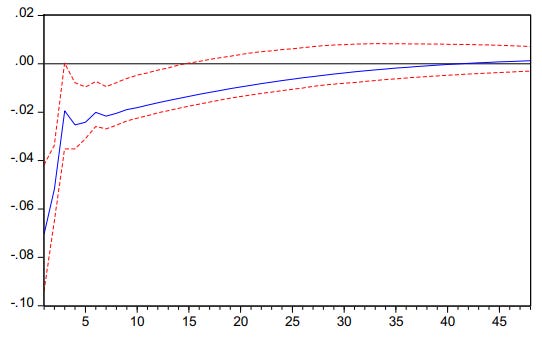We all know that when it comes to changing our habits or attitudes toward life, nothing beats personal experience. People who have never depended on a government safety net like unemployment benefits or social services will never be able to appreciate the impact these safety nets have on a person’s mental and physical health. And people who never had to rely on such safety nets are usually much more inclined to reduce these benefits to provide ‘incentives’ to work.
Well, the same is true it seems for attitudes toward climate change. Over the last two decades, climate-related events such as hurricanes, blizzards and other extreme weather events have become more common and increased in intensity, thus creating more destruction. A group of researchers examined how the affected communities responded to such severe events. Obviously, energy consumption right after a severe weather event hits is reduced significantly and then recovers. The chart below shows that after about three years, energy consumption in the affected regions is back to normal levels.
Energy consumption in response to a severe climate event
Source: Machrychoriti et al. (2023)
What is interesting though is that the CO2 emissions of affected regions do not recover all the way back to pre-event levels. Even four years after a severe weather event hit, CO2 emissions in the region are still about 2% lower than before.
CO2 emissions after a severe climate event
Source: Machrychoriti et al. (2023)
What happens there is simple. Affected regions switch to generating energy from renewable sources rather than fossil fuels and homes destroyed by hurricanes and other extreme weather events are rebuilt to modern standards of energy efficiency. Similarly, cars that got destroyed are replaced by newer cars with lower emissions. All of these factors combine to reduce overall emissions in areas hit by extreme weather events. But by far the most important contribution comes from the switch to renewable energy from fossil fuels. And that tells us something about attitudes towards climate change and how they change once you are adversely affected by it.






This is all nonsense. Your conclusions are silly.
The only thing to be noticed here is that people go and buy NEW stuff once their OLD stuff is destroyed. NEW stuff is more energy efficient.
It's not a question of people's behaviour, they have the same spending habits. The only thing changing is that NEW stuff consumes LESS
Houston. The city of Houston. The Mecca of Oil and Gas.. was hit by the strongest hurricanes in American history... in the 30s. Boy did that make them run to lithium mining.
If you want to have a serious conversation about the human toll, let’s discuss strip mining for cobalt in the Congo... human slavery. Thrusting human life for emissions reduction.
Until then, this type of analysis is Shakespearean comedy.